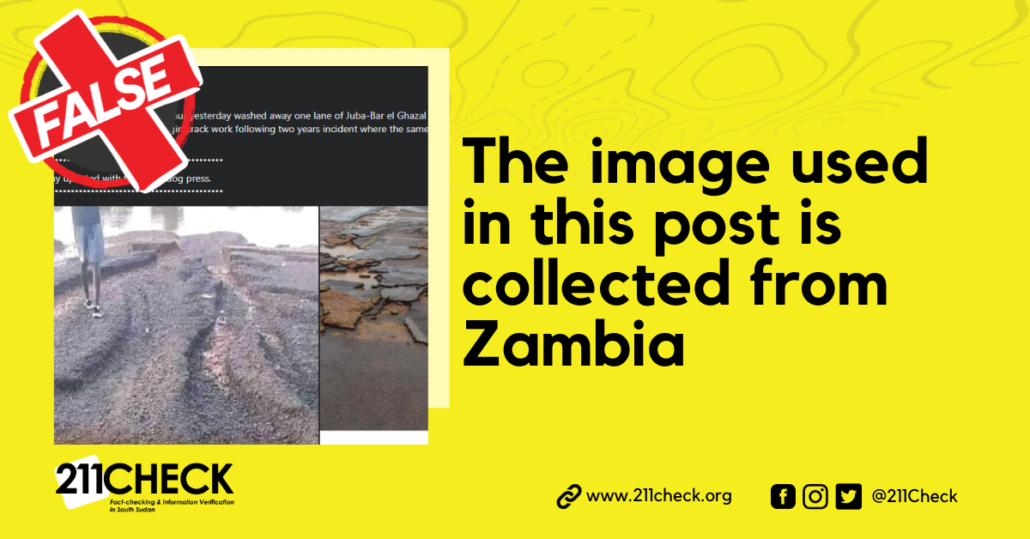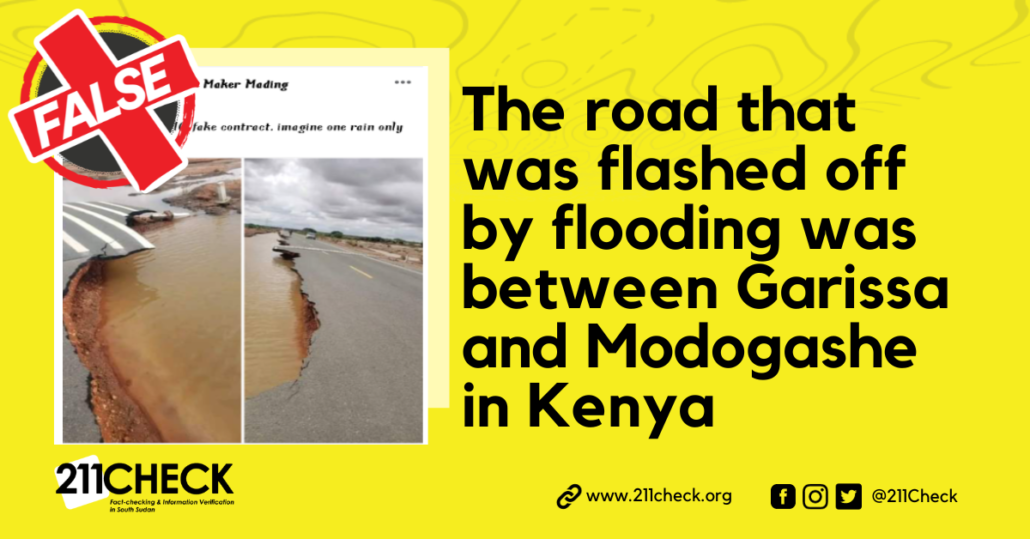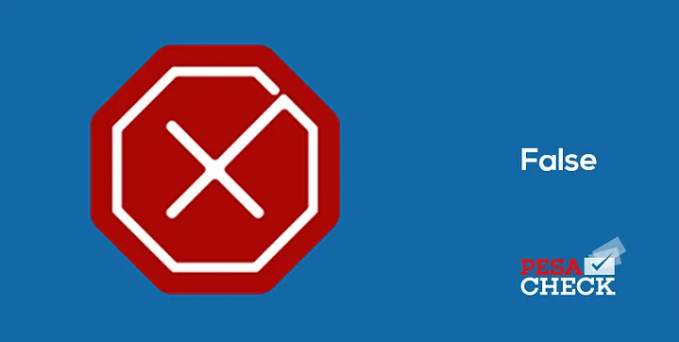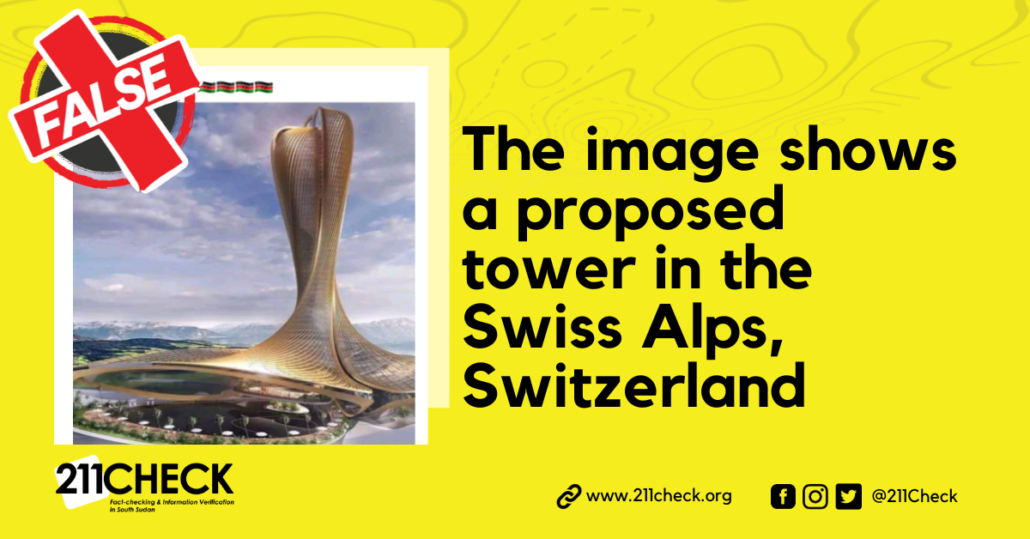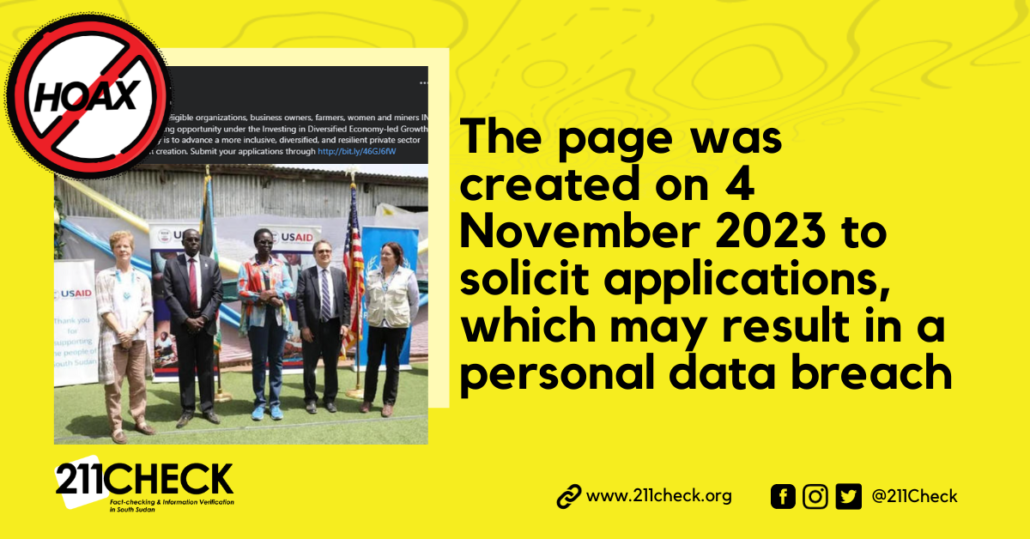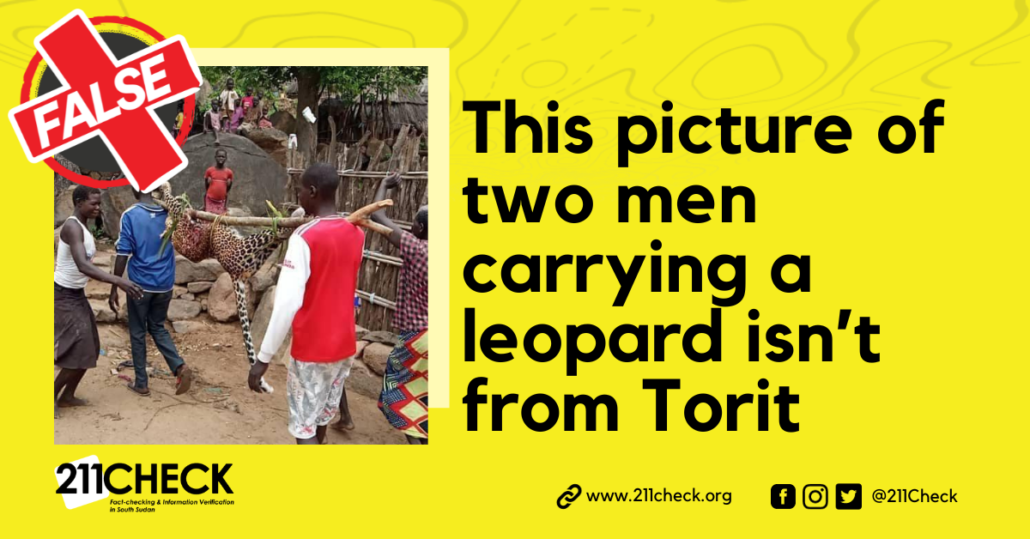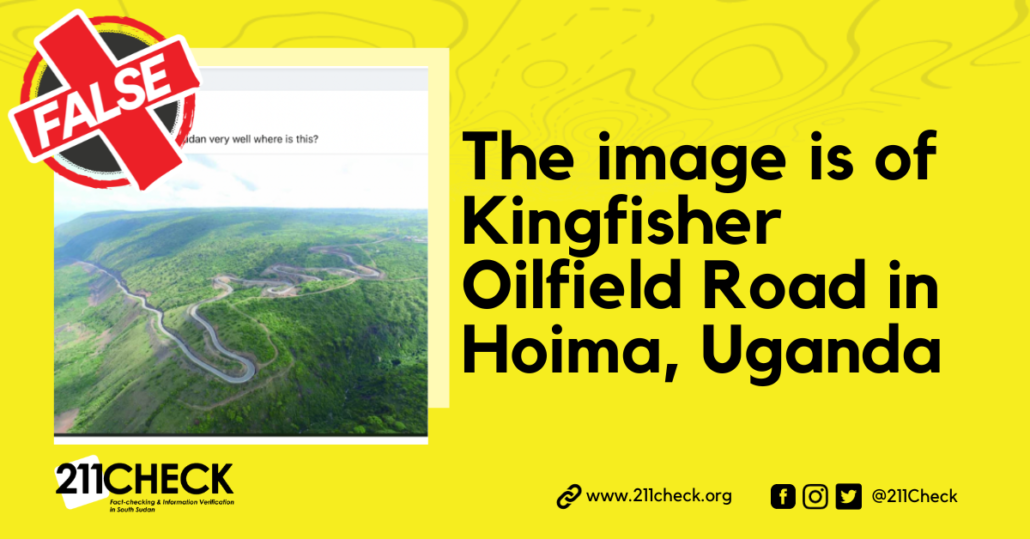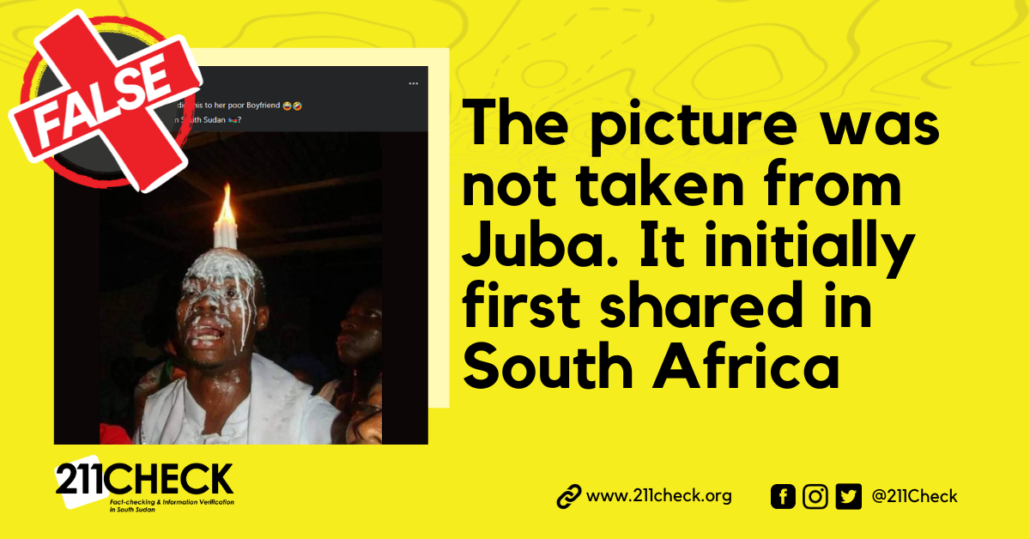Fact-check: Were some parts of the Barl-el-Ghazal Road washed away during the November rains?
No, the images used in this post were collected from different sources and at different times.
Writer: Jibi Moses
These images shared on a Facebook post, archived here, claiming that rain washed away one of the lanes of the Juba-Bar el Ghazal Road in November 2023 are partly false.
Watchdog Press, a Facebook page, published the claim on November 8, 2023, where one of the photos had the image of a man. The post reads: “#Breaking #News: A heavy downpour yesterday washed away one of the lanes of the Juba-Bar-el- Ghazal highway. This is the second embarrassment of Gimcrack work following a two years incident where the same highway was destroyed by rain.”
The screenshot of the post made by Watchdog Press
The post attracted comments from Facebook users, some saying that the information was baseless, while others said the incident happened in Kenya, not South Sudan.
This prompted us to conduct an investigation.
Claim verification
Image One:
211Check ran a Google Reverse Image Search on the first image, which returned the image as being of Mayiik Ayii Deng.
Mayiik Ayii Deng is a former Minister of Foreign Affairs and International Cooperation, as well as a former Minister of Presidential Affairs.
From the results, this particular image of Mayiik was seemingly first shared on August 25, 2020, by Juba TV in a post that claimed he had stolen COVID-19 money in Somalia.
Image Two:
211 Check carried out reverse searches on the rundown road on different search engines, like Microsoft Bing and Yandex, but they did not return any results. The image seemingly does not have an internet footprint.
Image Three:
With this image, Google Lens reverse search returned results showing that the image was taken in Zambia.
The Zambia Times, on February 14, 2017, posted the picture with a headline: ‘The newly tarred Luangwa-Feira Road has been damaged by heavy rains.’
Other sites that published similar stories with this image can also be seen here, here, here, and here.
The Great East Road:
Luangwa-Feira Road, also called The Great East Road, or T4 Highway, is a major Zambian highway linking the Eastern Province to the rest of the country and also the most important link between Zambia, Malawi, and northern Mozambique. The overall objectives of the Great East Road (T4) Rehabilitation Project are to reduce poverty and promote equitable economic growth and regional integration in Zambia.
Juba Bar el Ghazal Road and rains:
In November 2023, Juba and most surrounding areas received a lot of rain, causing flash floods in some areas and seasonal streams.
This caused speculations and claims that some parts of different roads under construction in South Sudan have been washed away seemingly because there were reports of the road being washed away in 2020. The incident was reported here, here and here.
However, there hasn’t been a report of the same in November 2023.
Conclusion:
211 Check has found the claim that some parts of the Barl-el-Ghazal road lane were washed away by the recent rains to be false, as the images used in this post were collected from different sources and at different times. One being from South Sudan, another from Zambia, and one that could not be traced online. This claim, if not fact-checked, has the capacity to ruin the credibility of the road construction companies in South Sudan, as there are currently some projects being carried out.
This fact check was published by 211 Check with technical support from Code for Africa’s PesaCheck newsdesk through the African Fact-Checking Alliance (AFCA).
To ensure accuracy and transparency, we at 211 Check welcome corrections from our readers. If you spot an error in this article, please request a correction using this form. Our team will review your request and make the necessary corrections immediately, if any.It’s vital to fight misinformation and disinformation in the media by avoiding fake news.
Don’t share content you’re uncertain about. False information can harm and mislead people, risking their lives—Fact-check before sharing. For more details, visit https://211check.org/ or message us on WhatsApp at +211 917 298 255. #FactsMatter

